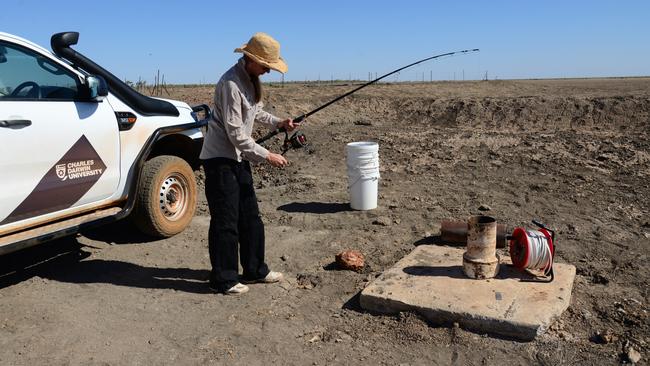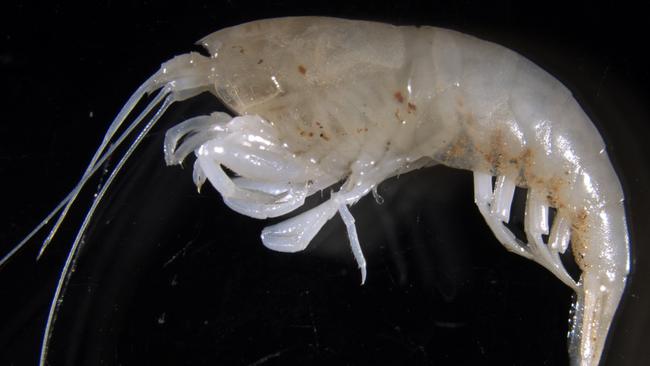NT Government fracking research tender sent to ICAC
A two centimetre blind shrimp could become the centre of an ICAC investigation involving a NT government fracking contract.
Business
Don't miss out on the headlines from Business. Followed categories will be added to My News.
A TWO centimetre blind shrimp could become the centre of an anti-corruption investigation involving a Northern Territory government fracking contract.
The NT Buy Local Industry Advocate Denys Stedman confirmed he had investigated a $287,991 research tender to assess the development risks in the Beetaloo Sub-basin.
The tender was sent by Charles Darwin University researchers to the NT Buy Local Industry Advocate last year, who has now referred it to the ICAC.
“I have referred this matter to ICAC. I will not be making any comment,” Mr Stedman said.
In November the government was accused of “shopping around” for independent research after failing to award a contract to CDU researchers, instead giving it to a Western Australian private company Biota Environmental Sciences.
The CDU team had already conducted two baseline studies into the NT aquatic ecosystems, one funded by an industry group and the other by the Commonwealth.

The scientists found the samples were teeming with life, including 11 new species of underground aquatic creatures, known as stygofauna, which work to keep the water clean.
The animals included tiny snails, crustaceans and an enormous – by stygofauna standards – 20mm colourless blind shrimp.
Their findings concluded that there needed to be thorough assessment and monitoring of groundwater systems before fracking projects could proceed.
When the third round of research went to the private company Biota Environmental Sciences in September, CDU researchers told the NT News they were shocked.
“We were ready to go out in the field,” A CDU researcher who did not wish to be named said.
The researcher said the university had reached the final stages of the procurement process, having signed documents with the government and were waiting for a purchase order.
It is understood the WA contract was charging double what the Territory researchers were proposing.

A Department of Environment, Parks and Water Security spokeswoman said in November that stygofauna was an extremely specialised field and the tender aimed to secure the best available expertise nationally.
“Biota have a track record of consistently providing a high scientific standard of biological reporting for environmental assessments,” she said.
ICAC Commissioner Michael Riches said he could not comment on the status of an investigation or referral.
“I do not routinely comment upon whether or not I have received a particular report or whether I am investigating a particular matter,” Mr Riches said.
“I would only do so where I consider there are circumstances that warrant such public confirmation.”





